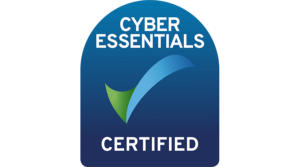WHAT ARE THE CORE QUALITY TOOLS?
At the heart of the drive for Zero Defects lie the indispensable core quality tools: Advanced Product Quality Planning (APQP), Failure Mode and Effects Analysis (FMEA), Statistical Process Control (SPC), Measurement System Analysis (MSA), and the 8D problem-solving methodology. These tools collectively form the cornerstone of a quality assurance framework, empowering businesses to pre-emptively identify potential risks, enhance quality and process efficiency, mitigate errors, and systematically resolve issues when they arise. By harnessing the power of these tools, organizations not only ensure the delivery of top-quality products but also cultivate a culture of continuous improvement, ultimately fostering long-term success and customer satisfaction.
What are the benefits of deploying the Quality Tools?
Enhanced Product Reliability
Core quality tools ensure products meet high standards, minimizing faults or failures, promoting safety and reliability.
Proactive Risk Management
Tools like FMEA and APQP help identify potential issues beforehand, reducing risks and ensuring smoother processes.
Improved Process Capability
SPC and MSA support the ongoing drive for zero defects.
Efficient Problem Solving
The 8D method enables systematic problem-solving, reducing downtime and improving overall efficiency.
Implementing these tools leads to higher customer satisfaction, as high-quality, reliable products meet and exceed expectations.
What is the History of these Tools?
The evolution of core quality tools has been integral to the development and refinement of modern industry standards, notably outlined in reference documents like the AIAG (Automotive Industry Action Group) “blue books.” Beginning in the mid-20th century, the foundations were laid with Statistical Process Control (SPC), championed by luminaries like Dr. W. Edwards Deming and Dr. Joseph Juran. These methodologies gained prominence in manufacturing during World War II, ensuring consistent quality in critical production processes. Advanced Product Quality Planning (APQP) emerged in the 1980s, streamlining product development processes and enhancing quality planning. Concurrently, Failure Mode and Effects Analysis (FMEA) gained traction, offering a structured approach to identify and mitigate potential failure modes. The need for standardized measurement systems led to the development of Measurement System Analysis (MSA), refining measurement accuracy and reliability. The culmination of these methodologies was codified in industry-recognized standards, establishing benchmarks for quality management practices, and laying the groundwork for today’s indispensable tools in maintaining and advancing quality standards across various industries including Automotive, Aerospace, Pharmaceutical and beyond.
What are the key principles that underpin the use of the Core Quality Tools?
The core quality tools are built upon several key principles advocated by Deming, Juran, and Crosby, which form the bedrock of effective quality management, these include:
- Continuous Improvement: The tools embody the spirit of continual improvement, striving for incremental enhancements in processes and products.
- Statistical Approach: Statistical Process Control (SPC) and Measurement System Analysis (MSA) align with Deming’s emphasis on using data and statistical methods to understand and manage processes effectively.
- Quality Planning: Advanced Product Quality Planning (APQP) reflects Juran’s idea of proactively planning for quality, ensuring that quality is designed into products and processes from the outset.
- Quality Improvement: The 8D problem-solving methodology is rooted in Juran’s philosophy of problem-solving and quality improvement through a structured approach.
- Zero Defects: Crosby’s principle of “zero defects” is ingrained in tools like FMEA, which aims to anticipate and prevent defects before they occur, aligning with the proactive quality approach.
What are some tools used?
Advanced Product Quality Planning (APQP): APQP is a structured framework utilized during product development phases. It ensures that quality is built into the product from the design stage itself, incorporating customer requirements, risk assessment, and validation processes.
Failure Mode and Effects Analysis (FMEA): FMEA is a proactive tool used to anticipate potential failure modes within a system, product, or process. By systematically identifying potential failure points, assessing their impact, and devising preventive measures, FMEA helps in mitigating risks and improving reliability.
Statistical Process Control (SPC): SPC involves the use of statistical methods to monitor and control processes. It allows businesses to understand variation within processes, identify issues early on, and make data-driven decisions to ensure consistent and high-quality output.
Measurement System Analysis (MSA): MSA evaluates and ensures the accuracy, precision, and stability of measurement systems. By understanding and improving measurement processes, MSA helps in making reliable decisions based on accurate data.
8D Problem-Solving Methodology: The 8D approach is a systematic problem-solving method, guiding teams through a series of steps to identify, correct, and prevent problems. It emphasizes root cause analysis, corrective actions, and implementing sustainable solutions to prevent recurrence.
These tools collectively empower organizations to enhance product quality, optimize processes, and foster a culture of continuous improvement.
Are these tools and principles only applicable to manufacturing?
No, these tools can be applied across all sectors, including services, financial sector, healthcare, and more.
What are the most important things to consider implementing the Core Quality Tools?
One of the most significant considerations when implementing core quality tools is ensuring a robust commitment from all levels of the organization. It’s crucial to have buy-in from top management, establishing a culture that values quality as a fundamental aspect of operations. Additionally, providing adequate training and resources to employees to effectively use these tools is essential. Creating a framework where these tools are integrated into daily operations and decision-making processes ensures their successful implementation. Moreover, fostering an environment that encourages continuous improvement and learning from the insights generated by these tools is key to deriving maximum value from their implementation.
Where can I learn more about Core Quality Tools?
Here’s a selection of our most popular courses – explore these options and choose the one that’s right for you.
Statistical Process Control
Essential techniques for efficient monitoring and optimisation. 2 day course.
Process Failure Mode and Effects Analysis
Activity-based introduction to FMEA concepts and practices. 2 day course.
Measurement System Analysis
Essential skills to evaluate and improve measurement systems. 2 day course.







